Thirty-seven Iowa motorsports legends were inducted into the first Iowa Hall of Fame and Racing Museum, Inc., on Saturday, March 24, 2018, in Webster City. The inductees represent a virtual “who’s who” among Iowa legends in automotive sports. This list includes many living Iowa legends in various areas of the motorsports industry in Iowa, regarded by many as the nation’s “racingest” state. For years Iowa led the nation with the number of tracks holding weekly races in a per-capita basis.
Drivers 1970 – Present
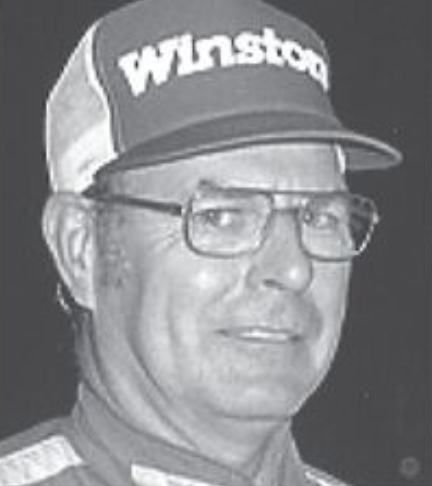 (Lisbon) – Roger Dolan’s long racing career includes a number of championships, including the 1987 NASCAR Winston Racing Series National Championship. That season, Dolan won 33 races in 67 starts to take the national championship while driving a car owned by Larry and Penny Eckrich of Cosgrove. He won 19 times for the Eckriches a year earlier when he won the NASCAR Central Region championship. Among many other accomplishments, Dolan also won the first ever NASCAR Busch All-Star Series championship in 1985.
(Lisbon) – Roger Dolan’s long racing career includes a number of championships, including the 1987 NASCAR Winston Racing Series National Championship. That season, Dolan won 33 races in 67 starts to take the national championship while driving a car owned by Larry and Penny Eckrich of Cosgrove. He won 19 times for the Eckriches a year earlier when he won the NASCAR Central Region championship. Among many other accomplishments, Dolan also won the first ever NASCAR Busch All-Star Series championship in 1985.
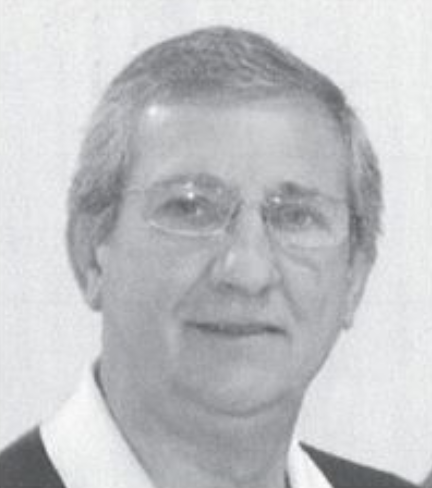 (Dike) – “What am I doing here?” That was the first thought in Curt Hansen’s mind during his first-ever race on an Iowa dirt oval. You see, Hansen had drawn the No. 3 pill for the start. When the green flag flew, he followed the pole starter into turn one when mayhem unfolded before his eyes; the polesitter began rolling, the red flag flew, and Hansen had second thoughts about even beginning a racing career. Iowans, however, are happy he didn’t quit that day. Hansen went on to a distinguished racing career that ended too quickly. Had his eyes been better, there’s no doubt Hansen would have raced for several more years than he did. Often driving a car owned by his father, Curt Hansen won more than 300 feature races during his career. In 1978, Hansen raced four tracks regularly and won track championships at all four – Wednesday night in Oskaloosa, Friday in Cedar Rapids, Saturday at the Iowa State Fairgrounds in Des Moines, and Waterloo on Sundays. That year was the first of two years that Hansen was voted by the fans as Iowa’s best driver in the Iowa Racing Yearbook. He had a number of wins in major events and won the Cornhusker-Hawkeye Challenge three straight years, 1975, 1976 and 1977. Among other major victories, Hansen won the Falstaff 100 in Cedar Rapids in both 1976 and 1978, he won the Pabst 100 at East Moline, Illinois, the Knoxville Late Model Nationals in 1977, the Boone Grand Nationals in both 1977 and 1980. He also traveled some, winning the Canadian Dirt Track Championship in 1977 and the Dirt Track Classic at Deland, Florida in 1972. Hansen came out of retirement briefly in the 1990s and ran a few more late-model races in the NASCAR All-Star Series. He also ran for a time in a Modified, but eyesight eventually forced his retirement.
(Dike) – “What am I doing here?” That was the first thought in Curt Hansen’s mind during his first-ever race on an Iowa dirt oval. You see, Hansen had drawn the No. 3 pill for the start. When the green flag flew, he followed the pole starter into turn one when mayhem unfolded before his eyes; the polesitter began rolling, the red flag flew, and Hansen had second thoughts about even beginning a racing career. Iowans, however, are happy he didn’t quit that day. Hansen went on to a distinguished racing career that ended too quickly. Had his eyes been better, there’s no doubt Hansen would have raced for several more years than he did. Often driving a car owned by his father, Curt Hansen won more than 300 feature races during his career. In 1978, Hansen raced four tracks regularly and won track championships at all four – Wednesday night in Oskaloosa, Friday in Cedar Rapids, Saturday at the Iowa State Fairgrounds in Des Moines, and Waterloo on Sundays. That year was the first of two years that Hansen was voted by the fans as Iowa’s best driver in the Iowa Racing Yearbook. He had a number of wins in major events and won the Cornhusker-Hawkeye Challenge three straight years, 1975, 1976 and 1977. Among other major victories, Hansen won the Falstaff 100 in Cedar Rapids in both 1976 and 1978, he won the Pabst 100 at East Moline, Illinois, the Knoxville Late Model Nationals in 1977, the Boone Grand Nationals in both 1977 and 1980. He also traveled some, winning the Canadian Dirt Track Championship in 1977 and the Dirt Track Classic at Deland, Florida in 1972. Hansen came out of retirement briefly in the 1990s and ran a few more late-model races in the NASCAR All-Star Series. He also ran for a time in a Modified, but eyesight eventually forced his retirement.
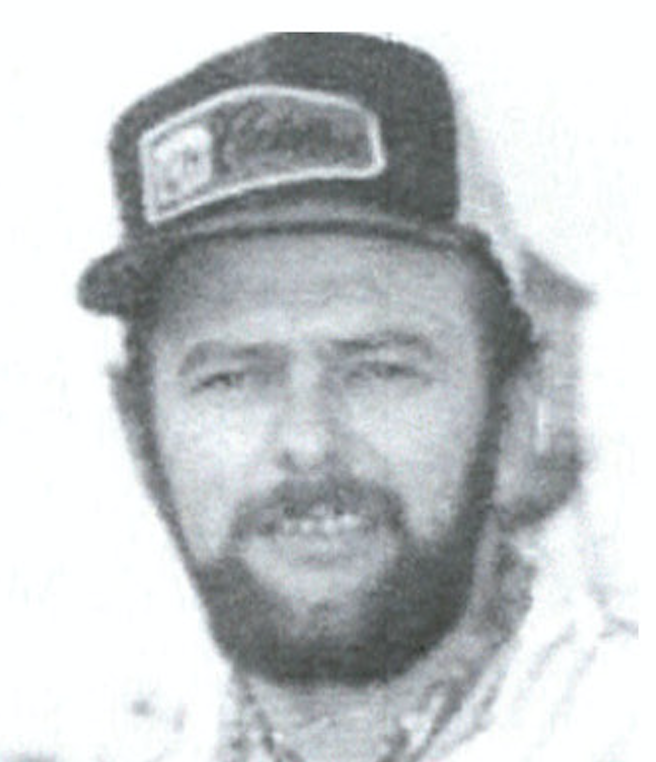 (Wilton - now rural Tipton) – Tom Hearst was already pretty well known in eastern Iowa racing circles by 1982 when Winston cigarette brand suddenly began pumping thousands of dollars into the NASCAR Weekly Racing Series. But, his renown was somewhat limited; he’d been racing pretty much close to home before that season. The lure of big money, however, was too much for Hearst to ignore. In 1982, Hearst began racing weekly at tracks that offered the big money that NASCAR offered. He won 27 feature races in 52 starts – winning more than half of the races he'd entered. That was far and away enough wins and enough points to vault Hearst to NASCAR’s first-ever weekly national championship. But, Hearst was even busier than those 52 NASCAR races in 1982; he also won 15 of the 17 non-NASCAR races he entered that season. Hearst is rightly proud of those numbers. The series win that season netted Hearst $20,000, a far cry from the more than $100,000 that later winners pocketed. But Hearst was the first and will always be the first. He went on to score victories in many series, won track championships and scored victories in major events. But Tom Hearst will always be remembered for that one magnificent season in 1982 when he became the first-ever national champion.
(Wilton - now rural Tipton) – Tom Hearst was already pretty well known in eastern Iowa racing circles by 1982 when Winston cigarette brand suddenly began pumping thousands of dollars into the NASCAR Weekly Racing Series. But, his renown was somewhat limited; he’d been racing pretty much close to home before that season. The lure of big money, however, was too much for Hearst to ignore. In 1982, Hearst began racing weekly at tracks that offered the big money that NASCAR offered. He won 27 feature races in 52 starts – winning more than half of the races he'd entered. That was far and away enough wins and enough points to vault Hearst to NASCAR’s first-ever weekly national championship. But, Hearst was even busier than those 52 NASCAR races in 1982; he also won 15 of the 17 non-NASCAR races he entered that season. Hearst is rightly proud of those numbers. The series win that season netted Hearst $20,000, a far cry from the more than $100,000 that later winners pocketed. But Hearst was the first and will always be the first. He went on to score victories in many series, won track championships and scored victories in major events. But Tom Hearst will always be remembered for that one magnificent season in 1982 when he became the first-ever national champion.
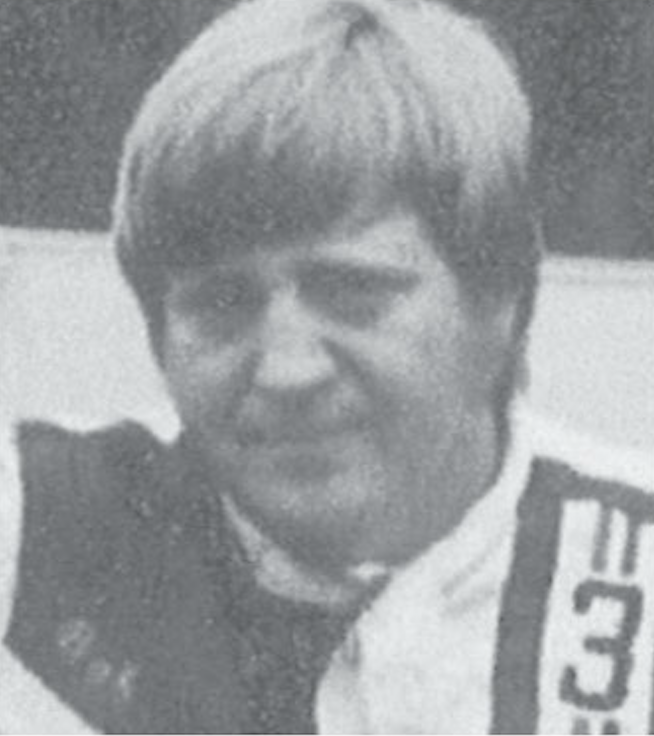 (Estherville) – The Iowa racing world was shocked on August 19, 1985 when news arrived that Bob Shryock, one of the top drivers in the state, had died in a construction accident in Coon Rapids, Minnesota. Shryock was just 41 years old. Before his untimely death, however, Shryock’s feats on race tracks across the Midwest had become legendary. During his 17 years behind the wheel of race cars, Shryock had raced at more than 35 tracks in at least 10 states from Florida to provinces in Canada. He won more than 15 track championships, several times at tracks like the Hamilton County Speedway in Webster City, the Buena Vista Raceway in Alta, as well as at Fairmont, Minnesota. He was the first-ever champion of the four-track American Outlaw Association late model series in 1983. In addition to his track championships, he won numerous special events, including five wins and five top five finishes in 11 Black Hills Nationals at Rapid City, S.D. He won at least one major event at each of his regular tracks, but also won special events at Des Moines, Eldon, Omaha, Neb., and Hartford, S.D. among several others. Three days before his death, he stood in victory lane with Kelly, celebrating his son’s first-ever win, which happened in the Modified feature that night. The following night, Bob Shryock won his final late model feature, beating Bob Hill at Webster City. Bob’s exploits on the race tracks of the Midwest have remained legendary since his death more than 30 years ago.
(Estherville) – The Iowa racing world was shocked on August 19, 1985 when news arrived that Bob Shryock, one of the top drivers in the state, had died in a construction accident in Coon Rapids, Minnesota. Shryock was just 41 years old. Before his untimely death, however, Shryock’s feats on race tracks across the Midwest had become legendary. During his 17 years behind the wheel of race cars, Shryock had raced at more than 35 tracks in at least 10 states from Florida to provinces in Canada. He won more than 15 track championships, several times at tracks like the Hamilton County Speedway in Webster City, the Buena Vista Raceway in Alta, as well as at Fairmont, Minnesota. He was the first-ever champion of the four-track American Outlaw Association late model series in 1983. In addition to his track championships, he won numerous special events, including five wins and five top five finishes in 11 Black Hills Nationals at Rapid City, S.D. He won at least one major event at each of his regular tracks, but also won special events at Des Moines, Eldon, Omaha, Neb., and Hartford, S.D. among several others. Three days before his death, he stood in victory lane with Kelly, celebrating his son’s first-ever win, which happened in the Modified feature that night. The following night, Bob Shryock won his final late model feature, beating Bob Hill at Webster City. Bob’s exploits on the race tracks of the Midwest have remained legendary since his death more than 30 years ago.
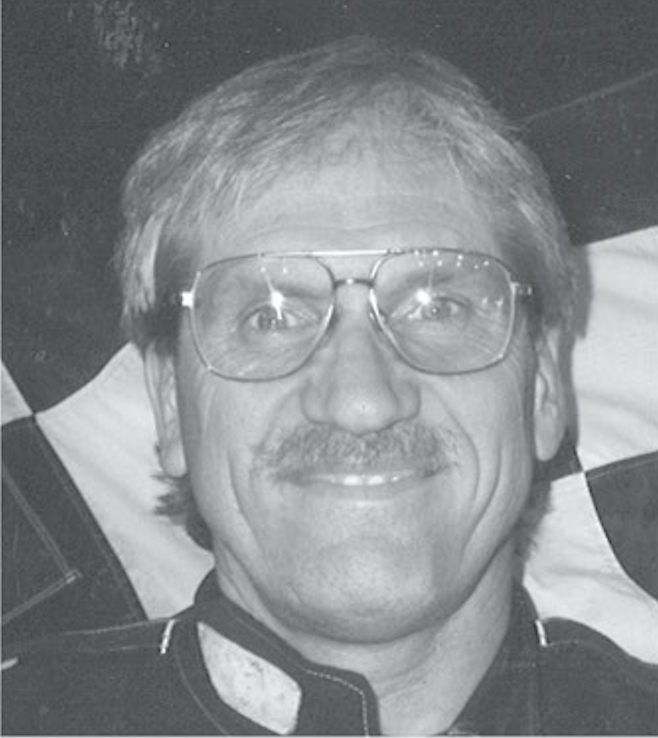 (Davenport, now in rural Blue Grass) – Gary Webb was one of the more unique Iowa stock car drivers more than three decades ago. You see, Webb was one of the few who could make automobile racing not only an avocation, but a vocation as well. Webb was a full-time racer, and a great one at that. Foregoing the income that a steady job would provide, Webb opted instead to live on what he could earn going fast around dirt tracks in Iowa and the Midwest. Now nearing 70 years old, Webb continues to race in weekly shows around the Midwest. Webb’s 2000 season was one that most drivers only dream of achieving. Fueled by 16 feature wins in 18 starts at Dubuque Fairgrounds Speedway, Webb won 22 total features in 54 starts to win the NASCAR Winston Racing Series National Championship, while driving a car owned by Larry Moring and another owned by himself. That win netted Webb a $150,000 bonus from series sponsor Winston. He finished second in the 2001 NASCAR national title race and won the series’ Most Popular Driver award. Now a competitor in six consecutive decades, Webb began racing late models as a 19-year-old in 1968, and his greatest decade came in the 1980’s. During that 10-year period, Webb raced to 201 feature victories and won UMP national championships in both 1984 and 1985. He counts the 1998 Yankee Dirt Track Classic one of his biggest career victories. Webb has raced in more than 26 states and has well more than 500 feature victories. Honors have poured in for Webb over the years. He was named one of the 25 greatest NASCAR Winston Racing Series drivers during the 25th anniversary of the NASCAR Weekly Series in 2006 and he’s also been inducted into the National Late Model Hall of Fame.
(Davenport, now in rural Blue Grass) – Gary Webb was one of the more unique Iowa stock car drivers more than three decades ago. You see, Webb was one of the few who could make automobile racing not only an avocation, but a vocation as well. Webb was a full-time racer, and a great one at that. Foregoing the income that a steady job would provide, Webb opted instead to live on what he could earn going fast around dirt tracks in Iowa and the Midwest. Now nearing 70 years old, Webb continues to race in weekly shows around the Midwest. Webb’s 2000 season was one that most drivers only dream of achieving. Fueled by 16 feature wins in 18 starts at Dubuque Fairgrounds Speedway, Webb won 22 total features in 54 starts to win the NASCAR Winston Racing Series National Championship, while driving a car owned by Larry Moring and another owned by himself. That win netted Webb a $150,000 bonus from series sponsor Winston. He finished second in the 2001 NASCAR national title race and won the series’ Most Popular Driver award. Now a competitor in six consecutive decades, Webb began racing late models as a 19-year-old in 1968, and his greatest decade came in the 1980’s. During that 10-year period, Webb raced to 201 feature victories and won UMP national championships in both 1984 and 1985. He counts the 1998 Yankee Dirt Track Classic one of his biggest career victories. Webb has raced in more than 26 states and has well more than 500 feature victories. Honors have poured in for Webb over the years. He was named one of the 25 greatest NASCAR Winston Racing Series drivers during the 25th anniversary of the NASCAR Weekly Series in 2006 and he’s also been inducted into the National Late Model Hall of Fame.
Drivers 1948 – 1969
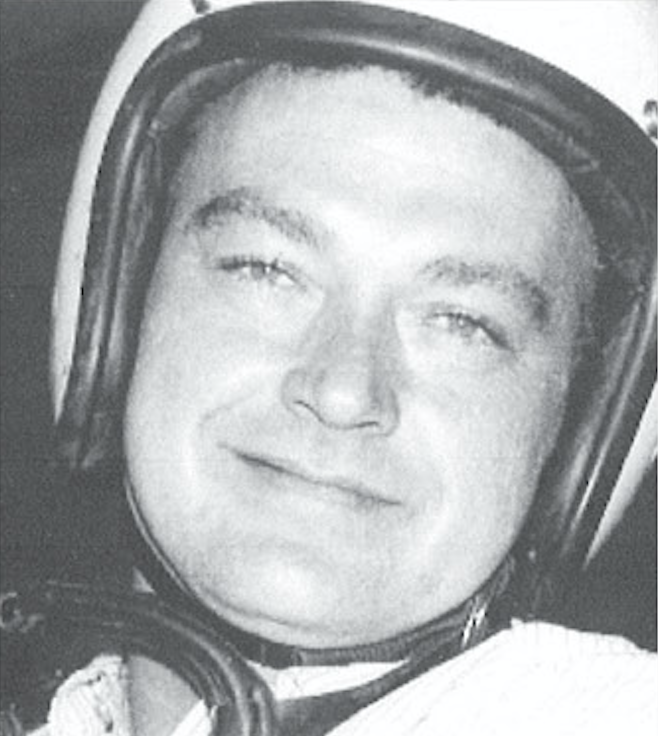 (Cedar Rapids) – Cedar Rapids has produced a bevy of top-notch Iowa race car drivers through the years and one of the best was certainly the late Darrell Dake. Dake, who began racing in the 1950’s became a top IMCA Stock Car driver in the 1950’s, finishing among the point leaders numerous times. He won a 200-lap IMCA race in 1959 at Cedar Rapids, also winning that year at Knoxville and in the prestigious “Hawkeye 300” at the Iowa State Fairgrounds, driving a 1957 Chevrolet Convertible.
(Cedar Rapids) – Cedar Rapids has produced a bevy of top-notch Iowa race car drivers through the years and one of the best was certainly the late Darrell Dake. Dake, who began racing in the 1950’s became a top IMCA Stock Car driver in the 1950’s, finishing among the point leaders numerous times. He won a 200-lap IMCA race in 1959 at Cedar Rapids, also winning that year at Knoxville and in the prestigious “Hawkeye 300” at the Iowa State Fairgrounds, driving a 1957 Chevrolet Convertible.
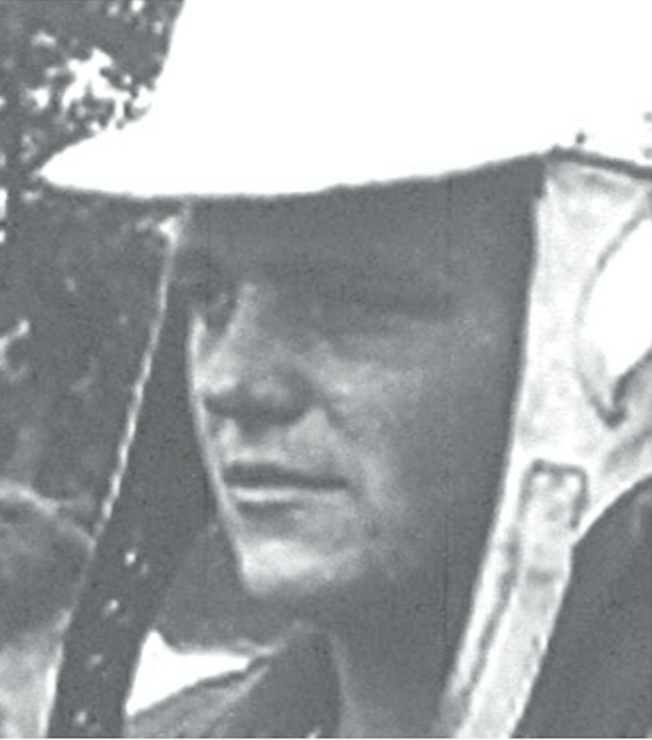 (Waterloo) – Drivers who competed at Tunis Speedway in Waterloo learned quickly that you didn’t mess with Red. The dirt oval, carved out in Jud Tunis’ beloved horse-racing track, could have been named “Droste Speedway” rather than Tunis Speedway. During his long career, Droste made a habit of taking home the lion’s share of the purse offered drivers at the track. But, it wasn’t just at Tunis that Droste was a regular winner, with nearly 700 feature races in a career, Droste won often at several tracks. The Droste name has been around since those early years after World War II ended and the racing ban that went with it was lifted. His son, Steve, began his own motorsports career and now, Red’s grandson, Tyler is among the top up-and-coming modified drivers in Iowa. In fact, the last race Red was able to attend was at Independence Motor Speedway where he watched his grandson Tyler win a championship. You didn’t mess with Red Droste on the race track, he was king of the hill and if you understood that, you’d get along fine. He raced against some of the best Eastern Iowa drivers of all time; he held his own and left a legacy that’ll be hard to match. When drivers of his era gather to talk “shop,” the name “Red Droste” is sure to come up as ranking among the best Iowans of all time.
(Waterloo) – Drivers who competed at Tunis Speedway in Waterloo learned quickly that you didn’t mess with Red. The dirt oval, carved out in Jud Tunis’ beloved horse-racing track, could have been named “Droste Speedway” rather than Tunis Speedway. During his long career, Droste made a habit of taking home the lion’s share of the purse offered drivers at the track. But, it wasn’t just at Tunis that Droste was a regular winner, with nearly 700 feature races in a career, Droste won often at several tracks. The Droste name has been around since those early years after World War II ended and the racing ban that went with it was lifted. His son, Steve, began his own motorsports career and now, Red’s grandson, Tyler is among the top up-and-coming modified drivers in Iowa. In fact, the last race Red was able to attend was at Independence Motor Speedway where he watched his grandson Tyler win a championship. You didn’t mess with Red Droste on the race track, he was king of the hill and if you understood that, you’d get along fine. He raced against some of the best Eastern Iowa drivers of all time; he held his own and left a legacy that’ll be hard to match. When drivers of his era gather to talk “shop,” the name “Red Droste” is sure to come up as ranking among the best Iowans of all time.
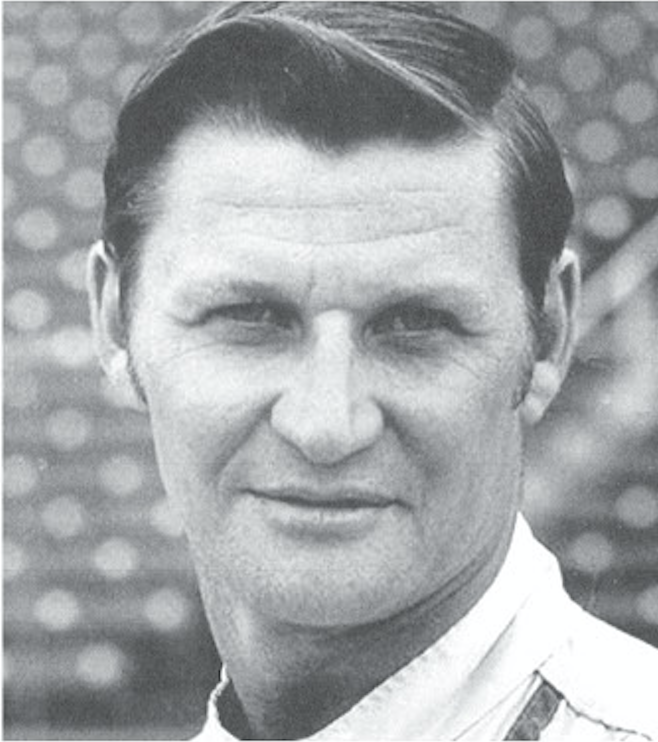 (Mechanicsville) – Mechanicsville’s Verlin Eaker was the first Iowan to win the prestigious World 100, winning the event in 1972. That same year he won the inaugural Cornhusker Hawkeye Challenge. Verlin did try his hand at USAC and ARCA and even ran in a Daytona 125 qualifier. In 1971, he won the USAC 100-mile stock car event at the Iowa State Fairgrounds in Des Moines. In 1978, Eaker won both the Yankee Dirt Classic at Cedar Rapids and the Midwest Dirt Track Championship at Muskogee, Oklahoma. In 1979, he added the Miller 100 at Cedar Rapids to his list of laurels. Eaker was inducted into the National Dirt Late Model Hall of Fame in 2007. Of all his wins, perhaps his victory in the inaugural Yankee Dirt Track Classic when he topped a field of nearly 70 late models from all around the country is most memorable. He held off Doug Kennimer from Dahlonega, Ga., for that victory in a race halted after 92 laps by a drenching rain.
(Mechanicsville) – Mechanicsville’s Verlin Eaker was the first Iowan to win the prestigious World 100, winning the event in 1972. That same year he won the inaugural Cornhusker Hawkeye Challenge. Verlin did try his hand at USAC and ARCA and even ran in a Daytona 125 qualifier. In 1971, he won the USAC 100-mile stock car event at the Iowa State Fairgrounds in Des Moines. In 1978, Eaker won both the Yankee Dirt Classic at Cedar Rapids and the Midwest Dirt Track Championship at Muskogee, Oklahoma. In 1979, he added the Miller 100 at Cedar Rapids to his list of laurels. Eaker was inducted into the National Dirt Late Model Hall of Fame in 2007. Of all his wins, perhaps his victory in the inaugural Yankee Dirt Track Classic when he topped a field of nearly 70 late models from all around the country is most memorable. He held off Doug Kennimer from Dahlonega, Ga., for that victory in a race halted after 92 laps by a drenching rain.
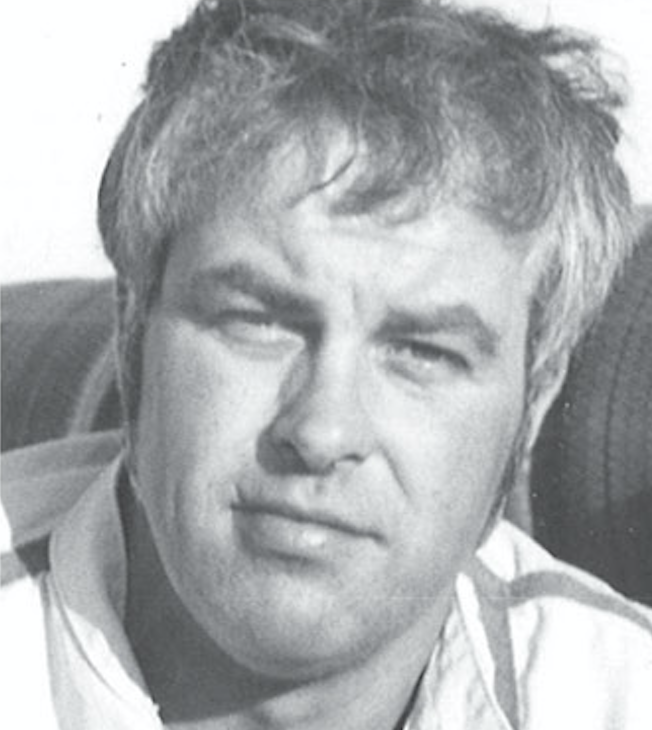 (Laurens) – Upon his induction into the Kossuth County Racing Hall of Fame, Denny Hovinga was described by Chad Meyer as “One of the hardest chargers to ever grace the racing surfaces across the Midwest.” In a 40-year racing career, Denny Hovinga raced hobby stocks, late models and sprint cars before finishing his career in the modified ranks. He was known over the years as “Ho Ho”, “Big 10”, and “Golden Bear”. He was a master of the early 1970’s center-steer roofless cars that the late Keith Knaack referred to as “voodoo” wagons, those cars that sailed around tracks like Boone without the left front tire ever touching the racing surface. Hovinga won in all types of cars. In fact, he drove to about 400 feature wins during his career. His career carried him all across Iowa, as well as to tracks in Nebraska, Minnesota, South Dakota, Arizona, Colorado and Missouri. He once traveled through the night from a $10,000-to-win show in Missouri to a $100-to-win race on Sunday at Vinton because “I don’t care what it pays … I like to race.” Denny was born on September 29, 1941 and he died on May 9, 2018 due to injuries sustained in a golf-cart accident.
(Laurens) – Upon his induction into the Kossuth County Racing Hall of Fame, Denny Hovinga was described by Chad Meyer as “One of the hardest chargers to ever grace the racing surfaces across the Midwest.” In a 40-year racing career, Denny Hovinga raced hobby stocks, late models and sprint cars before finishing his career in the modified ranks. He was known over the years as “Ho Ho”, “Big 10”, and “Golden Bear”. He was a master of the early 1970’s center-steer roofless cars that the late Keith Knaack referred to as “voodoo” wagons, those cars that sailed around tracks like Boone without the left front tire ever touching the racing surface. Hovinga won in all types of cars. In fact, he drove to about 400 feature wins during his career. His career carried him all across Iowa, as well as to tracks in Nebraska, Minnesota, South Dakota, Arizona, Colorado and Missouri. He once traveled through the night from a $10,000-to-win show in Missouri to a $100-to-win race on Sunday at Vinton because “I don’t care what it pays … I like to race.” Denny was born on September 29, 1941 and he died on May 9, 2018 due to injuries sustained in a golf-cart accident.
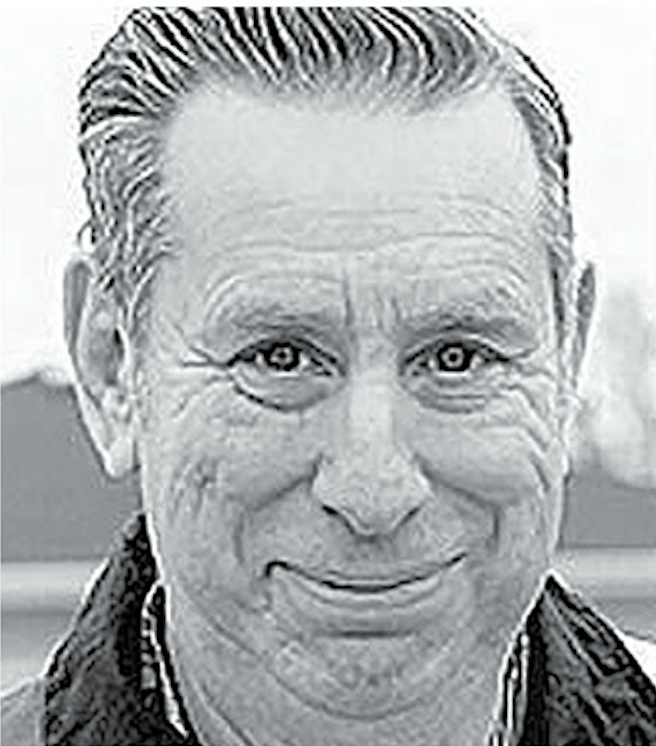 (Pleasant Valley) – Few drivers live to realize they had become legends. Ron Weedon of Pleasant Valley was one of the exceptions. He won more than 500 feature races in a career that began in 1948 – he was just 16 at the time – and he was still racing when he died at age 73. Few who knew him doubted that there were still some feature wins to be had, even though he raced against younger drivers, many of them more than 50 years younger. He switched from late models to modifieds in the last few seasons and he was in his garage, working on his car, when he was killed. His car fell off the stand, pinning him underneath. Ronnie Weedon won his 500th career feature on Friday, Aug. 15, 2003 at Davenport Speedway. The 500 career feature wins means Ronnie has captured, on average, 9.09 main events for every year he has competed. Weedon began his racing career at the Mahoney’s Track, now Lake Canyada in West Davenport. Weedon’s first race car was the same car he drove back and forth to and from the former Davenport High School. He was already driving race cars when he married his wife, Dee, in 1961. Dee was ‘just tickled to death’ when she watched her husband win for the 500th time. Not only did she become involved in Ronnie’s racing career, in later years it was just Ronnie and Dee working on the car. “We used to have a big crew, and all the women would sit together in the stands,” Weedon once said. “Now, I suppose, if she wasn’t so helpful with it, I’d have to quit. Without her, I’d be alone down in the pits.” Weedon was in his 70’s, but still young at heart. “It’s only true in how you feel. It isn’t true in how people look at you. To the younger ones, though, you’re still the old fart,” Weedon said. On his last race car, Weedon had printed on the back … “It’s not how old the dog in the fight is … it’s how much fight is in the old dog.” There was lots of “fight” in the “old dog” driving the familiar #00.
(Pleasant Valley) – Few drivers live to realize they had become legends. Ron Weedon of Pleasant Valley was one of the exceptions. He won more than 500 feature races in a career that began in 1948 – he was just 16 at the time – and he was still racing when he died at age 73. Few who knew him doubted that there were still some feature wins to be had, even though he raced against younger drivers, many of them more than 50 years younger. He switched from late models to modifieds in the last few seasons and he was in his garage, working on his car, when he was killed. His car fell off the stand, pinning him underneath. Ronnie Weedon won his 500th career feature on Friday, Aug. 15, 2003 at Davenport Speedway. The 500 career feature wins means Ronnie has captured, on average, 9.09 main events for every year he has competed. Weedon began his racing career at the Mahoney’s Track, now Lake Canyada in West Davenport. Weedon’s first race car was the same car he drove back and forth to and from the former Davenport High School. He was already driving race cars when he married his wife, Dee, in 1961. Dee was ‘just tickled to death’ when she watched her husband win for the 500th time. Not only did she become involved in Ronnie’s racing career, in later years it was just Ronnie and Dee working on the car. “We used to have a big crew, and all the women would sit together in the stands,” Weedon once said. “Now, I suppose, if she wasn’t so helpful with it, I’d have to quit. Without her, I’d be alone down in the pits.” Weedon was in his 70’s, but still young at heart. “It’s only true in how you feel. It isn’t true in how people look at you. To the younger ones, though, you’re still the old fart,” Weedon said. On his last race car, Weedon had printed on the back … “It’s not how old the dog in the fight is … it’s how much fight is in the old dog.” There was lots of “fight” in the “old dog” driving the familiar #00.
Owner | Mechanic | Builder | Manufacturer | Car Sponsor
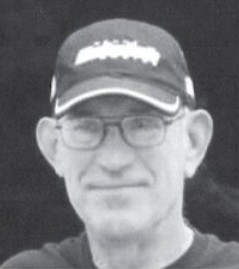
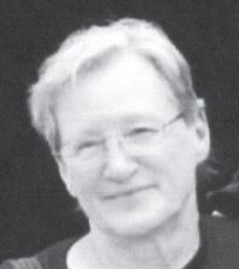 (Cosgrove) – No car owners have ever dominated NASCAR racing in Iowa and the Midwest like Larry and Penny Eckrich of Cosgrove. Owners of the famous Precision Performance No. 50, the Eckrich’s car won the NASCAR Central Region championship with both Roger Dolan and Ray Guss Jr. behind the wheel. Dolan won titles in 1984, 1985 and in 1987, capturing the National Winston Racing Series championship in 1987. With Guss Jr. driving, Eckrich’s cars won regional NASCAR titles in both 1991 and in 1995. They now have three sons of their own racing and winning in Late Model cars.
(Cosgrove) – No car owners have ever dominated NASCAR racing in Iowa and the Midwest like Larry and Penny Eckrich of Cosgrove. Owners of the famous Precision Performance No. 50, the Eckrich’s car won the NASCAR Central Region championship with both Roger Dolan and Ray Guss Jr. behind the wheel. Dolan won titles in 1984, 1985 and in 1987, capturing the National Winston Racing Series championship in 1987. With Guss Jr. driving, Eckrich’s cars won regional NASCAR titles in both 1991 and in 1995. They now have three sons of their own racing and winning in Late Model cars.
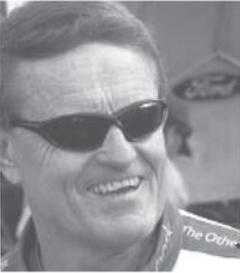 (Fort Dodge) – Long-time Fort Dodge resident Larry Clement is known as a race car owner, driver and car, truck and airplane dealer who always helped a fellow racer. Larry co-owned the dirt late model that Bob Hill drove to many feature wins across the Midwest. The team won the 1993 NASCAR Busch All-Star Tour championship. He is most noted recently as car owner of the No. 46 ARCA car driven to nine championships by Frank Kimmel. The team won 70 ARCA features with Kimmel driving and another four with Bob Hill behind the wheel. He is also a nine-time Great American Stock Car Championship series winning driver. He’s an instrument flight qualified pilot with over two million air miles logged. He currently resides in both Iowa and Sioux Falls, S.D., where he has businesses.
(Fort Dodge) – Long-time Fort Dodge resident Larry Clement is known as a race car owner, driver and car, truck and airplane dealer who always helped a fellow racer. Larry co-owned the dirt late model that Bob Hill drove to many feature wins across the Midwest. The team won the 1993 NASCAR Busch All-Star Tour championship. He is most noted recently as car owner of the No. 46 ARCA car driven to nine championships by Frank Kimmel. The team won 70 ARCA features with Kimmel driving and another four with Bob Hill behind the wheel. He is also a nine-time Great American Stock Car Championship series winning driver. He’s an instrument flight qualified pilot with over two million air miles logged. He currently resides in both Iowa and Sioux Falls, S.D., where he has businesses.
 (Story City) – Bob Harris, owner of Bob Harris Enterprises, began his long involvement with the sport of automobile racing as a crew member for Hall of Fame driver Bob Shryock. He later became a driver in his native Estherville. He soon began building late model race cars at his first shop, located in Superior, Iowa, before moving to a shop in Independence. Later, the business moved to a new building in Story City. After selling his business, Harris founded Bob Harris Enterprises in 2007 with the business dedicated to providing outstanding products and services to drivers and crew members. As a car builder, Harris-built modifieds won more than 10,000 feature races. Now, he uses his expertise to help racers with their own car set-ups and he’s helped race teams win national, regional and super nationals title. Drivers who’ve been assisted by Harris have won track championships in IMCA, NASCAR, UMP, USMTS and WISSOTA titles, as well as others.
(Story City) – Bob Harris, owner of Bob Harris Enterprises, began his long involvement with the sport of automobile racing as a crew member for Hall of Fame driver Bob Shryock. He later became a driver in his native Estherville. He soon began building late model race cars at his first shop, located in Superior, Iowa, before moving to a shop in Independence. Later, the business moved to a new building in Story City. After selling his business, Harris founded Bob Harris Enterprises in 2007 with the business dedicated to providing outstanding products and services to drivers and crew members. As a car builder, Harris-built modifieds won more than 10,000 feature races. Now, he uses his expertise to help racers with their own car set-ups and he’s helped race teams win national, regional and super nationals title. Drivers who’ve been assisted by Harris have won track championships in IMCA, NASCAR, UMP, USMTS and WISSOTA titles, as well as others.
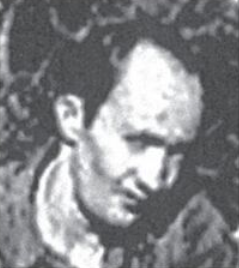 (Harlan) – In many ways, Dale Swanson was an engineer before his time. When many drivers raced with little help, it was Swanson who arranged for what many consider to be the first factory backed racing to Iowa. That was in the 1950’s when Chevrolet offered factory support for Swanson’s IMCA Stock Car team and Johnny Beauchamp drove to series championships in both 1956 and 1957. Swanson was perhaps the first Iowa car owner to have two hall of fame drivers as chauffeurs. Beauchamp was Swanson’s driver in the early 1950s, but when Swanson entered a race in which cars, by rule, were required to have fenders Beauchamp refused. Swanson once said, “Johnny told me he wouldn’t drive in a ‘sissy’ race. But, I wanted to race, so that’s when I joined forces with Tiny for those types of races.” Whether the cars had fenders or not, Swanson had two of the best drivers in Iowa at his disposal. Although he didn’t own the car that Beauchamp drove in the first Daytona 500 in 1959, he did own Chevrolets that Beauchamp drove later in 1959, as well as 1960 and 1961. Swanson is listed as Beauchamp’s car owner when the latter posted a win at the old mile dirt track, Lakewood Speedway, in 1959 and again at the Tennessee State Fairgrounds in Nashville in 1960. Beauchamp and Swanson raced in about a dozen NASCAR events in those days. Swanson had a gift for mechanics; in fact, those who knew him well thought of him as a “mechanical wizard.” He got the racing bug after World War II had ended but soon found that he was more suited in preparing race cars than driving them. That’s when he teamed up with Beauchamp and the raced in the old “hot rod” class. They became instant winners across Iowa and Nebraska. Swanson switched to coupes in 1950. Soon, Swanson had two cars – one for Beauchamp and another for Lund. Swanson and Beauchamp entered IMCA racing in 1955 for car owner George Short and they won their first series race on August 16 at Denison, then won again on August 21 in Wausau, Wisconsin. They won six times that season, then won back-to-back IMCA championships in 1956 and 1957, winning a remarkable 43 races during that first season, then winning another 32 races in 1957. Also in 1957, Swanson built a car to race on the beach at Daytona Beach, Fla. Dale Swanson was born on February 22, 1910 and passed away on January 28, 1996, just a month away from his 86th birthday.
(Harlan) – In many ways, Dale Swanson was an engineer before his time. When many drivers raced with little help, it was Swanson who arranged for what many consider to be the first factory backed racing to Iowa. That was in the 1950’s when Chevrolet offered factory support for Swanson’s IMCA Stock Car team and Johnny Beauchamp drove to series championships in both 1956 and 1957. Swanson was perhaps the first Iowa car owner to have two hall of fame drivers as chauffeurs. Beauchamp was Swanson’s driver in the early 1950s, but when Swanson entered a race in which cars, by rule, were required to have fenders Beauchamp refused. Swanson once said, “Johnny told me he wouldn’t drive in a ‘sissy’ race. But, I wanted to race, so that’s when I joined forces with Tiny for those types of races.” Whether the cars had fenders or not, Swanson had two of the best drivers in Iowa at his disposal. Although he didn’t own the car that Beauchamp drove in the first Daytona 500 in 1959, he did own Chevrolets that Beauchamp drove later in 1959, as well as 1960 and 1961. Swanson is listed as Beauchamp’s car owner when the latter posted a win at the old mile dirt track, Lakewood Speedway, in 1959 and again at the Tennessee State Fairgrounds in Nashville in 1960. Beauchamp and Swanson raced in about a dozen NASCAR events in those days. Swanson had a gift for mechanics; in fact, those who knew him well thought of him as a “mechanical wizard.” He got the racing bug after World War II had ended but soon found that he was more suited in preparing race cars than driving them. That’s when he teamed up with Beauchamp and the raced in the old “hot rod” class. They became instant winners across Iowa and Nebraska. Swanson switched to coupes in 1950. Soon, Swanson had two cars – one for Beauchamp and another for Lund. Swanson and Beauchamp entered IMCA racing in 1955 for car owner George Short and they won their first series race on August 16 at Denison, then won again on August 21 in Wausau, Wisconsin. They won six times that season, then won back-to-back IMCA championships in 1956 and 1957, winning a remarkable 43 races during that first season, then winning another 32 races in 1957. Also in 1957, Swanson built a car to race on the beach at Daytona Beach, Fla. Dale Swanson was born on February 22, 1910 and passed away on January 28, 1996, just a month away from his 86th birthday.
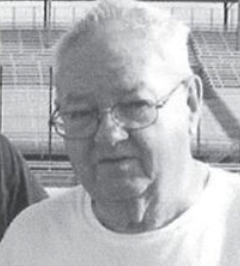 (Des Moines) – Bob Trostle was born March 20, 1933 and passed away November 21, 2015 at the age of 82. That’s the briefest of brief ways to describe the life of Bob, who parlayed a love of speed into a legendary life of sprint car racing. Trostle’s story is impossible to tell in just a few moments. Perhaps Knoxville track historians said it best upon Trostle’s death just over 16 months ago. They said, in part “Trostle was a larger than life figure around Knoxville and arguably the best ambassador of Knoxville and the sport of sprint car racing” … he was born and lived his entire life in Des Moines. In 1960, Bob turned from dragsters to super modifieds and built his first car for the 1962 Knoxville season. By the mid-‘60’s he had become successful at the Marion County Fairgrounds and into the ‘70’s he was known throughout the country as an owner and builder of sprint cars with many innovative ideas in his designs. His chassis were often copied by other builders because of their superiority and success. Although he had many drivers in the seat of his car, his most successful year was 1977 with Doug Wolfgang. The two won both the Knoxville track championship and the Knoxville Nationals. Nationwide, the two won 45 features that year and set a Knoxville record with 10 straight wins and 12 regular season victories. With Wolfgang behind the wheel, Trostle also won the 1976 Knoxville championship and he also won in 1981 and 1982 with Oklahoman Shane Carson driving. He won again in 1988 with Randy Smith of Mt. Ayr and Californian Tim Green driving. He won the Knoxville Nationals again in 1980 with co-owner Karl Kinser and Steve Kinser behind the wheel. During his career, Trostle won 302 sprint car features and another 40 wins in the 360 Sprint Car division. At Knoxville alone, Trostle cars won 410 unlimited sprint car features. Trostle was inducted into the S&K Mechanics Hall of Fame in 1971, the Knoxville Raceway Hall of Fame in 1979 and the National Sprint Car Hall of Fame in 1993. He fielded a car for 32 consecutive Knoxville Nationals and he was a tireless ambassador for the National Sprint Car Hall of Fame and for sprint car racing. He wrote an autobiography, with his good field Larry Weeks, titled “Life’s Tough on the Circuit.
(Des Moines) – Bob Trostle was born March 20, 1933 and passed away November 21, 2015 at the age of 82. That’s the briefest of brief ways to describe the life of Bob, who parlayed a love of speed into a legendary life of sprint car racing. Trostle’s story is impossible to tell in just a few moments. Perhaps Knoxville track historians said it best upon Trostle’s death just over 16 months ago. They said, in part “Trostle was a larger than life figure around Knoxville and arguably the best ambassador of Knoxville and the sport of sprint car racing” … he was born and lived his entire life in Des Moines. In 1960, Bob turned from dragsters to super modifieds and built his first car for the 1962 Knoxville season. By the mid-‘60’s he had become successful at the Marion County Fairgrounds and into the ‘70’s he was known throughout the country as an owner and builder of sprint cars with many innovative ideas in his designs. His chassis were often copied by other builders because of their superiority and success. Although he had many drivers in the seat of his car, his most successful year was 1977 with Doug Wolfgang. The two won both the Knoxville track championship and the Knoxville Nationals. Nationwide, the two won 45 features that year and set a Knoxville record with 10 straight wins and 12 regular season victories. With Wolfgang behind the wheel, Trostle also won the 1976 Knoxville championship and he also won in 1981 and 1982 with Oklahoman Shane Carson driving. He won again in 1988 with Randy Smith of Mt. Ayr and Californian Tim Green driving. He won the Knoxville Nationals again in 1980 with co-owner Karl Kinser and Steve Kinser behind the wheel. During his career, Trostle won 302 sprint car features and another 40 wins in the 360 Sprint Car division. At Knoxville alone, Trostle cars won 410 unlimited sprint car features. Trostle was inducted into the S&K Mechanics Hall of Fame in 1971, the Knoxville Raceway Hall of Fame in 1979 and the National Sprint Car Hall of Fame in 1993. He fielded a car for 32 consecutive Knoxville Nationals and he was a tireless ambassador for the National Sprint Car Hall of Fame and for sprint car racing. He wrote an autobiography, with his good field Larry Weeks, titled “Life’s Tough on the Circuit.
Promoter | Official | Media Member | Event/Series Sponsor
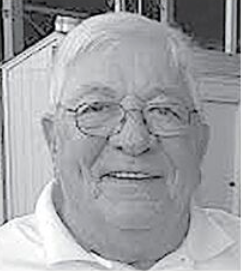 (Knoxville) – Ralph “Cappy” Capitani arrived in Knoxville as the high school football coach, a position he held on more than one occasion. But, nobody can live in Knoxville long without becoming associated in one way or another with the raceway. The sheer magnitude of the annual “Nationals” in August makes everyone there aware of what’s going on as more than 20,000 race fans triple the town’s population. And, it wasn’t long before Cappy became involved with sprint car racing; it became his love, even over football, a sport he played well at both Des Moines Dowling High School and at Iowa Teacher’s College, later UNI, in Cedar Falls. He was an NAIA first team all-American as a fullback in 1954. He was born March 15, 1932, and his parents died when he was young and he was raised by sisters Rose and Linda. While stationed in West Germany, Ralph married Marilyn Joan Gabby. He began working at Knoxville Raceway part-time as secretary in the ‘60’s because it paid more money than he could earn as a lifeguard at the city swimming pool. His passion for racing grew and, in 1979, he was named promoter. Under his leadership, he helped grow the Marion County Fairgrounds from 8,000 seats to 24,000 seats. He created new events and grew the Knoxville Nationals from a $10,000 event to an event that now boasts a purse of a of more than a quarter of a million dollars, paying $150,000 to win and $9,500 just to start the 24-car, feature race.
(Knoxville) – Ralph “Cappy” Capitani arrived in Knoxville as the high school football coach, a position he held on more than one occasion. But, nobody can live in Knoxville long without becoming associated in one way or another with the raceway. The sheer magnitude of the annual “Nationals” in August makes everyone there aware of what’s going on as more than 20,000 race fans triple the town’s population. And, it wasn’t long before Cappy became involved with sprint car racing; it became his love, even over football, a sport he played well at both Des Moines Dowling High School and at Iowa Teacher’s College, later UNI, in Cedar Falls. He was an NAIA first team all-American as a fullback in 1954. He was born March 15, 1932, and his parents died when he was young and he was raised by sisters Rose and Linda. While stationed in West Germany, Ralph married Marilyn Joan Gabby. He began working at Knoxville Raceway part-time as secretary in the ‘60’s because it paid more money than he could earn as a lifeguard at the city swimming pool. His passion for racing grew and, in 1979, he was named promoter. Under his leadership, he helped grow the Marion County Fairgrounds from 8,000 seats to 24,000 seats. He created new events and grew the Knoxville Nationals from a $10,000 event to an event that now boasts a purse of a of more than a quarter of a million dollars, paying $150,000 to win and $9,500 just to start the 24-car, feature race.
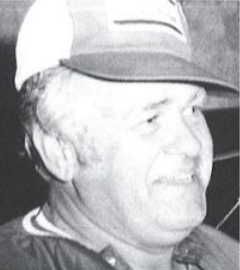 (Swisher) – Al Frieden’s name will always be remembered in Iowa racing history. It was Frieden, many of you will recall, who introduced NASCAR weekly racing to Iowa in 1979. Frieden operated Hawkeye Downs in Cedar Rapids from 1978 until the track was paved in 1988 at which time he moved his main operation to Farley Speedway. Farley had operated with marginal success until Frieden moved in and renovated the facility. His son, Mike, built a new grandstand at the track and Frieden took his NASCAR sanction with him to the new track. He promoted at several other eastern Iowa tracks, including West Liberty, Dubuque and, for a time, Davenport where he also ran NASCAR sanctioned events. At the same time, he promoted races at Tipton and brought that track a success it had not previously known, while running a program that featured the IMCA modified cars. Born Feb. 9, 1933, Frieden died on August 28, 2000.
(Swisher) – Al Frieden’s name will always be remembered in Iowa racing history. It was Frieden, many of you will recall, who introduced NASCAR weekly racing to Iowa in 1979. Frieden operated Hawkeye Downs in Cedar Rapids from 1978 until the track was paved in 1988 at which time he moved his main operation to Farley Speedway. Farley had operated with marginal success until Frieden moved in and renovated the facility. His son, Mike, built a new grandstand at the track and Frieden took his NASCAR sanction with him to the new track. He promoted at several other eastern Iowa tracks, including West Liberty, Dubuque and, for a time, Davenport where he also ran NASCAR sanctioned events. At the same time, he promoted races at Tipton and brought that track a success it had not previously known, while running a program that featured the IMCA modified cars. Born Feb. 9, 1933, Frieden died on August 28, 2000.
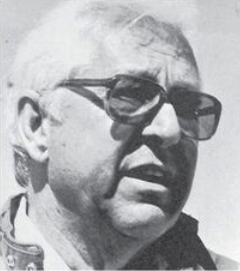 (Vinton) – A native of Vinton, Keith Knaack’s love of automobile racing began as a driver. Keith founded Hawkeye Racing News in 1967, continuing to work for the local newspaper while publishing what would become Iowa’s racing Bible. That soon became a full-time job and Keith quit at the local newspaper to devote his time totally to running Hawkeye Racing News. When the International Motor Contest Association became available in 1977, Keith joined with two men from Omaha to purchase what was America’s oldest racing sanctioning body. After two years of running a couple sprint car races at nearby Independence, a new car was built. That car would become the IMCA Modified. The rest, as they say, is history. The Modified took off rapidly, Knaack bought out his two Omaha partners and became sole owner of the International Motor Contest Association. What started with two or three cars racing Sunday nights at Vinton Speedway soon spread across Iowa, the Midwest and, finally, became nationally known. Keith ran both Hawkeye Racing News and IMCA until his death in 1993.
(Vinton) – A native of Vinton, Keith Knaack’s love of automobile racing began as a driver. Keith founded Hawkeye Racing News in 1967, continuing to work for the local newspaper while publishing what would become Iowa’s racing Bible. That soon became a full-time job and Keith quit at the local newspaper to devote his time totally to running Hawkeye Racing News. When the International Motor Contest Association became available in 1977, Keith joined with two men from Omaha to purchase what was America’s oldest racing sanctioning body. After two years of running a couple sprint car races at nearby Independence, a new car was built. That car would become the IMCA Modified. The rest, as they say, is history. The Modified took off rapidly, Knaack bought out his two Omaha partners and became sole owner of the International Motor Contest Association. What started with two or three cars racing Sunday nights at Vinton Speedway soon spread across Iowa, the Midwest and, finally, became nationally known. Keith ran both Hawkeye Racing News and IMCA until his death in 1993.
Motorcycle
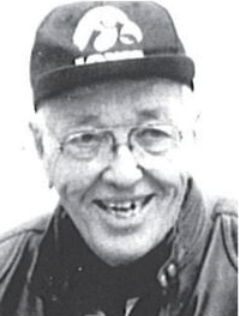 (Webster City) – Our first inductee into the Iowa Hall of Fame & Racing Museum in the Motorcycle category could actually be inducted under several different category headings. In the days before promoters were called promoters, Whit was the first speed superintendent for the Hamilton County Fair “speedway” activities in 1939. He helped design and built the speedway, beginning in 1938, a project that ended the following year. He was promoter and chairman of the American Legion Race Committee, which sponsored and directed many of the early IMCA Big Car, Motorcycle and Midget races at the Webster City track and he served as promoter, track official, starter and flagman for many of those first events. In fact, he served in those capacities from 1939 through the 1950’s, with the only exception being for four years of Naval service during World War II, when racing was banned nationwide. Whit began riding motorcycles in 1928 and won his first motorcycle race in 1930 at the age of just 15. He rode on four continents and won a number of Iowa motorcycle championships. He was a member of the Des Moines Valley Region Sports Car Club of America, winning several events in that series, as well as piling up post-season awards. He helped sponsor several road racing events at the Hamilton County Fairgrounds. He was a Charger member and held various offices with the Webster City Motorcycle Club and was also a member of the Iowa Motorcycle Association. He was assistant state referee and was instrumental in bringing several IMA and American Motorcycle Association-sanctioned events to the Hamilton County Speedway and Webster City. He brought the first scrambles event in Iowa to the speedway and helped the Webster City club host a number of IMA State meetings in Webster City. Whit is also a member of the Iowa Motorcyclist Hall of Fame.
(Webster City) – Our first inductee into the Iowa Hall of Fame & Racing Museum in the Motorcycle category could actually be inducted under several different category headings. In the days before promoters were called promoters, Whit was the first speed superintendent for the Hamilton County Fair “speedway” activities in 1939. He helped design and built the speedway, beginning in 1938, a project that ended the following year. He was promoter and chairman of the American Legion Race Committee, which sponsored and directed many of the early IMCA Big Car, Motorcycle and Midget races at the Webster City track and he served as promoter, track official, starter and flagman for many of those first events. In fact, he served in those capacities from 1939 through the 1950’s, with the only exception being for four years of Naval service during World War II, when racing was banned nationwide. Whit began riding motorcycles in 1928 and won his first motorcycle race in 1930 at the age of just 15. He rode on four continents and won a number of Iowa motorcycle championships. He was a member of the Des Moines Valley Region Sports Car Club of America, winning several events in that series, as well as piling up post-season awards. He helped sponsor several road racing events at the Hamilton County Fairgrounds. He was a Charger member and held various offices with the Webster City Motorcycle Club and was also a member of the Iowa Motorcycle Association. He was assistant state referee and was instrumental in bringing several IMA and American Motorcycle Association-sanctioned events to the Hamilton County Speedway and Webster City. He brought the first scrambles event in Iowa to the speedway and helped the Webster City club host a number of IMA State meetings in Webster City. Whit is also a member of the Iowa Motorcyclist Hall of Fame.
Figure 8
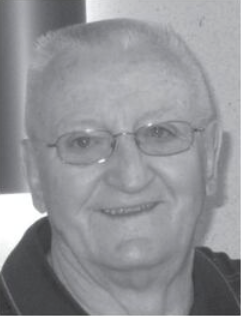 (Carlisle) – Unlike many drivers excelling in motorsports, Larry Conklin didn’t begin racing as a teenager. Larry was 40 when he began circle track racing at the Iowa State Fairgrounds in Des Moines. But, that doesn’t mean Conklin’s career was a short one. On the contrary, Conklin turned to figure-8 racing and he continued racing and winning for many years. He started his figure-8 career at Indianola on a track designed of hay bales. His career carried him to tracks at Indianola, What Cheer, Sigourney and Barnes City. After several seasons he concentrated on Indianola and his favorite track at the Dallas County Fairgrounds in Adel. He won many features and many championships and finished his career racing at his two favorite tracks – Indianola and Adel. He won in his 50’s, continued in his 60’s and 70’s, and finally called it quits at the age of 82.
(Carlisle) – Unlike many drivers excelling in motorsports, Larry Conklin didn’t begin racing as a teenager. Larry was 40 when he began circle track racing at the Iowa State Fairgrounds in Des Moines. But, that doesn’t mean Conklin’s career was a short one. On the contrary, Conklin turned to figure-8 racing and he continued racing and winning for many years. He started his figure-8 career at Indianola on a track designed of hay bales. His career carried him to tracks at Indianola, What Cheer, Sigourney and Barnes City. After several seasons he concentrated on Indianola and his favorite track at the Dallas County Fairgrounds in Adel. He won many features and many championships and finished his career racing at his two favorite tracks – Indianola and Adel. He won in his 50’s, continued in his 60’s and 70’s, and finally called it quits at the age of 82.
Drag Racing
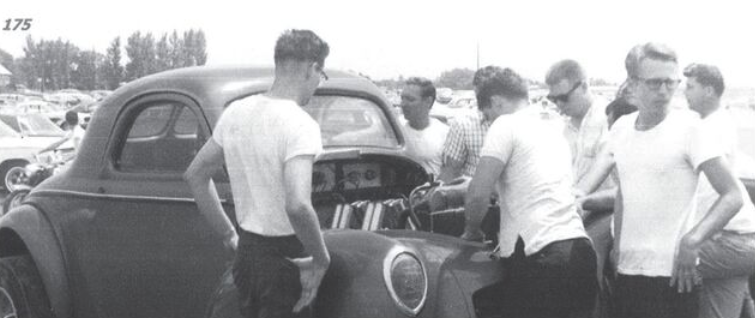 (Fort Dodge) – When three Grove brothers from Fort Dodge purchased a car from a little old lady in 1956 for $50, they had ideas of turning that car into a race car. With a little help from their family, the did build a race car and went on to win the World Series in A/GAS Class in 1967, 1968 and 1969. Driving their famous Willys coupe, the brothers also won the NHRA U.S. Nationals at Indianapolis Raceway Park in 1968. They became among the best-known Iowans in the drag racing field for years, racing in Iowa at tracks like Des Moines Dragway, NEITA Raceway and Humboldt Dragway, also competing regularly at Cornhuskers Dragway in Omaha. They won the A/Gas title at the Texas World Championships in 1964, won the A/Gas title in the World Series of Drag Racing at Cordova, Illinois in both 1968 and 1969 with a 1940 Willys Coupe. Switching to an Opel Kadett in 1969, they were featured in such magazines as Hot Rod, Car Craft and Popular Hot Rod. They won the A/Gas class title at the NHRA Spring Nationals in Dallas and the A/Gas Class title at the U.S. Nationals in Indianapolis, winning both titles again in 1971. They set the national A-Gass class record of 154.28 miles perhour in July of 1971 at Brainerd, Minnesota. They continued winning titles in 1972 and 1973, winning their final A/Gas class title at the Sportsnationals at the Beech Bend Raceway in Bowling Green, Kentucky.
(Fort Dodge) – When three Grove brothers from Fort Dodge purchased a car from a little old lady in 1956 for $50, they had ideas of turning that car into a race car. With a little help from their family, the did build a race car and went on to win the World Series in A/GAS Class in 1967, 1968 and 1969. Driving their famous Willys coupe, the brothers also won the NHRA U.S. Nationals at Indianapolis Raceway Park in 1968. They became among the best-known Iowans in the drag racing field for years, racing in Iowa at tracks like Des Moines Dragway, NEITA Raceway and Humboldt Dragway, also competing regularly at Cornhuskers Dragway in Omaha. They won the A/Gas title at the Texas World Championships in 1964, won the A/Gas title in the World Series of Drag Racing at Cordova, Illinois in both 1968 and 1969 with a 1940 Willys Coupe. Switching to an Opel Kadett in 1969, they were featured in such magazines as Hot Rod, Car Craft and Popular Hot Rod. They won the A/Gas class title at the NHRA Spring Nationals in Dallas and the A/Gas Class title at the U.S. Nationals in Indianapolis, winning both titles again in 1971. They set the national A-Gass class record of 154.28 miles perhour in July of 1971 at Brainerd, Minnesota. They continued winning titles in 1972 and 1973, winning their final A/Gas class title at the Sportsnationals at the Beech Bend Raceway in Bowling Green, Kentucky.